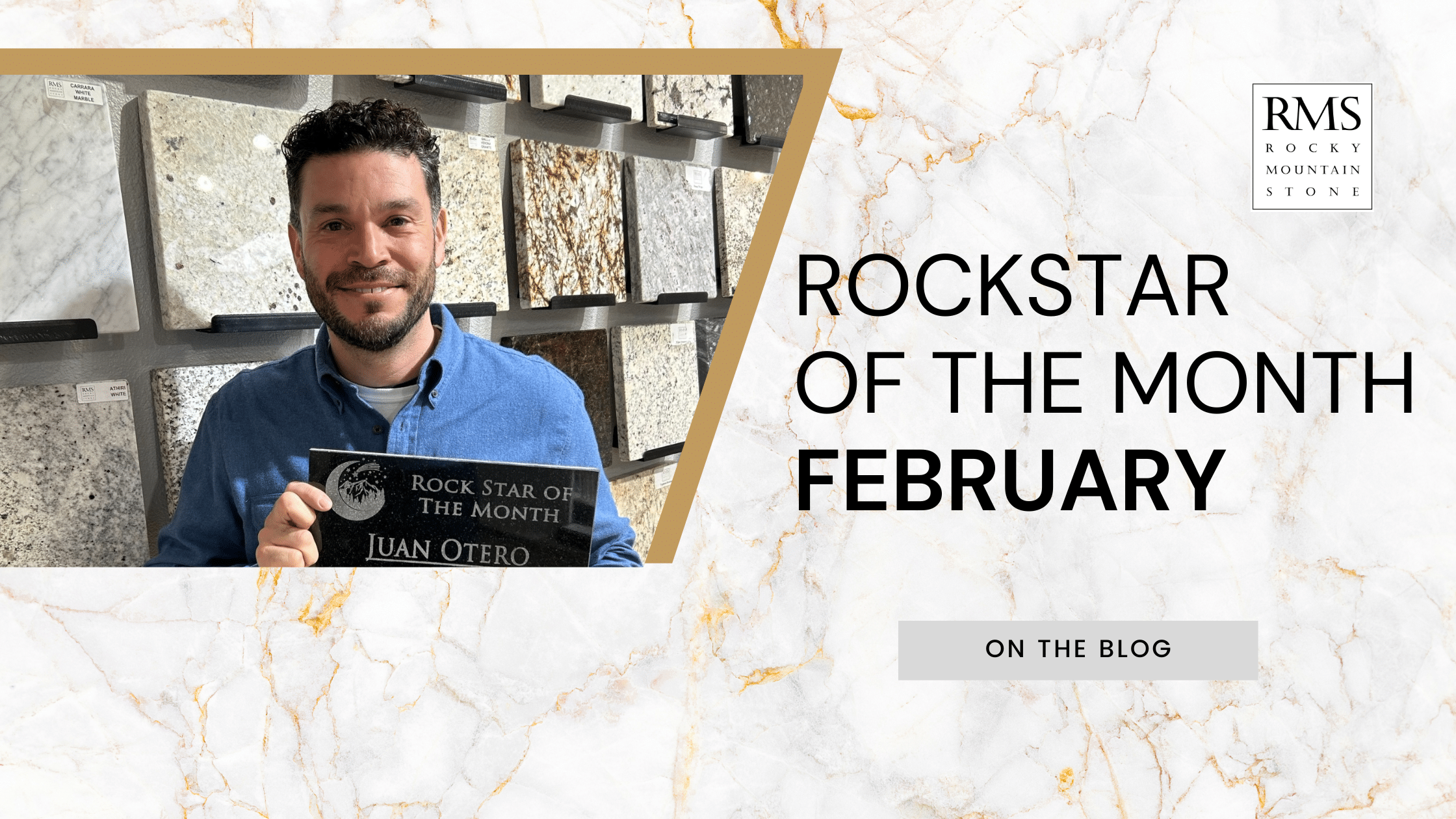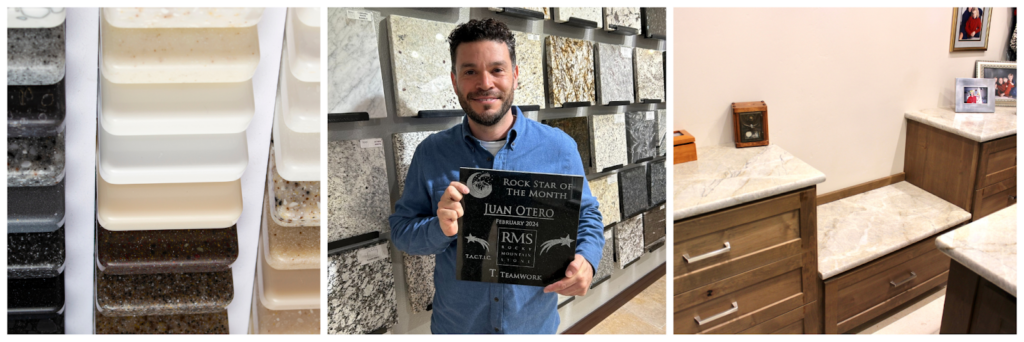One of the most critical and challenging jobs is managing and coordinating the schedules for our templating and installation crews. Our daily goal is to do things right the first time, every time. There is daily coordination between the project managers, the production shop, and the installation teams to ensure that we can keep the scheduling commitments we make. Juan Otero is our lead scheduler and does an incredible job keeping track of the daily projects that run through our operation. Kim Montano, one of our project managers, nominated Juan for this award and had this to say:
“Juan is a true example of living our TACTIC values every day. He is always ready and willing to help anywhere and anyone. He’s great with customers and is friendly and kind. He’s knowledgeable about every job going through the shop. Everyone in the company goes to him with questions, and he either has the answer or will get back to you quickly. He’s extremely hard-working and always puts in the extra effort to get the job done. If I owned my own company, I’d want 10 “Juans” working for me!”
Know Your Stone: Exploring the Right Stone for Your Project
The wide variety of colors and textures of natural stone means you have many options to express yourself. With various options available, it’s important to understand the characteristics and benefits of different types of stones so that you can make a decision you feel great about! Let’s explore popular choices such as granite, quartzite, marble, travertine, and porcelain.
Granite
Granite is an igneous rock widely prized for its striking beauty and durability. It is formed from cooling molten magma and contains a mix of minerals, resulting in unique patterns and colors. Granite is highly resistant to heat, scratches, and stains, making it ideal for kitchen countertops or floors. However, it requires periodic sealing to protect against stains and stay pristine. Also, granite’s naturally slip-resistant quality makes it a strong choice for patio paving, doorsteps, or other outdoor design elements.
Sandstone
True to its name, sandstone is commonly colored tan, red, white, yellow, or brown. Typically formed of sand and high amounts of quarts, this sedimentary rock allows you to infuse your home with rich earth tones. Sandstone is popularly used for chimneys, interior walls, and paving material. Due to its porous nature, proper sealing (and periodic resealing) is very important.
Quartzite
Quartzite is a natural stone formed from sandstone and transformed through heat and pressure. It is known for its durability and resembles marble with its elegant veining and patterns. A winning feature of quartzite is its resistance to both chemical and physical weathering. Quartzite is highly resistant to heat and is often used for kitchen countertops, backsplashes, and accent walls. In a way, it has the best of both worlds, with granite-like durability and a marble-like appearance.
Marble
Marble is a timeless, luxurious natural stone formed from limestone under intense heat and pressure. It features distinctive veining patterns and a polished finish that adds sought-after elegance to any space. Since it often contains minerals ranging from quarts to pyrite to iron oxides, it can present a range of various colors, from pink or green to gray or black. Remember that marble is porous and requires regular sealing to protect against stains and etching from acidic substances. It is commonly used for bathroom vanities, flooring, marble countertops, and fireplace surrounds.
Travertine
Travertine is a unique and versatile natural stone formed in hot springs and limestone caves. It comes in various earth tones such as cream, tan, white, and rust and is often used to add an atmosphere of relaxation to a space. It is a popular alternative to marble, as it is cheaper but still carries an air of luxury. Travertine is known for its aesthetic appeal and is commonly used for flooring, countertops, and outdoor applications. Due to its porous nature, it requires regular sealing to prevent staining and damage.
Porcelain
Porcelain is a man-made stone-like material highly resistant to scratches, stains, and heat. It is created by firing and compressing a mixture of clay, feldspar, and quartzite at high temperatures. A benefit of porcelain is its low porosity, meaning it does not need regular sealing. Porcelain slabs come in a wide range of colors, patterns, and finishes, making them suitable for both indoor and outdoor applications, such as countertops, flooring, and wall cladding.
When choosing the right material from your stone supplier, consider factors such as durability, maintenance requirements, budget, and design preferences. It’s essential to choose a stone that not only complements your home’s style but also suits the specific needs of the intended application. Our professionals will be glad to discuss your options with you, and Rock Stars like Juan will make sure that your project is scheduled to a T! Reach out now to explore possibilities today!

